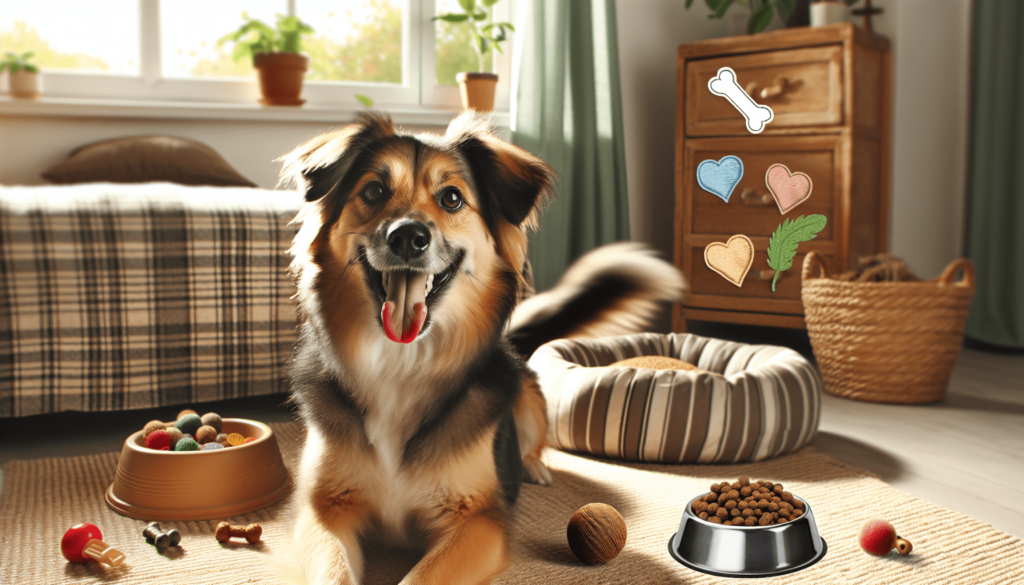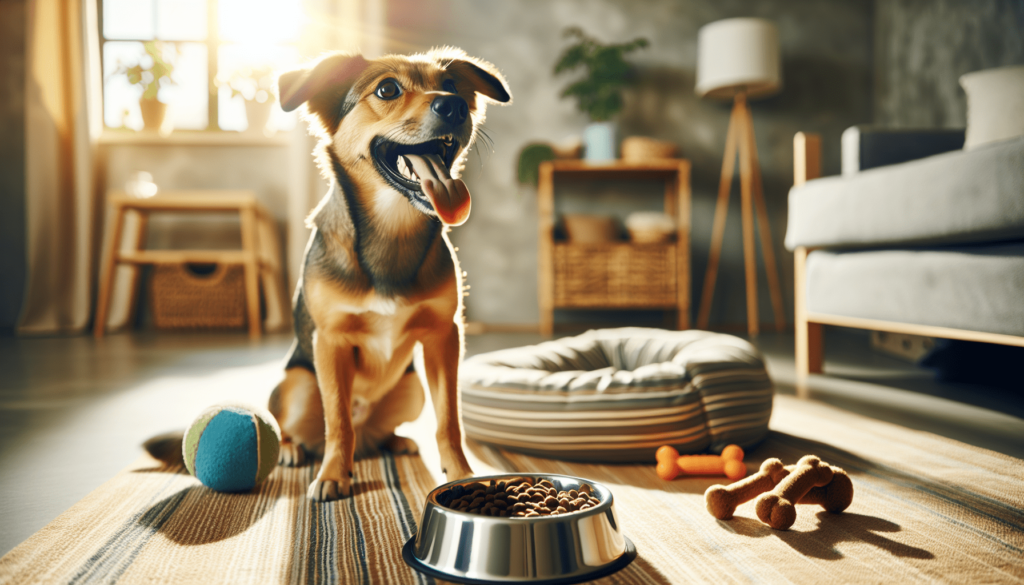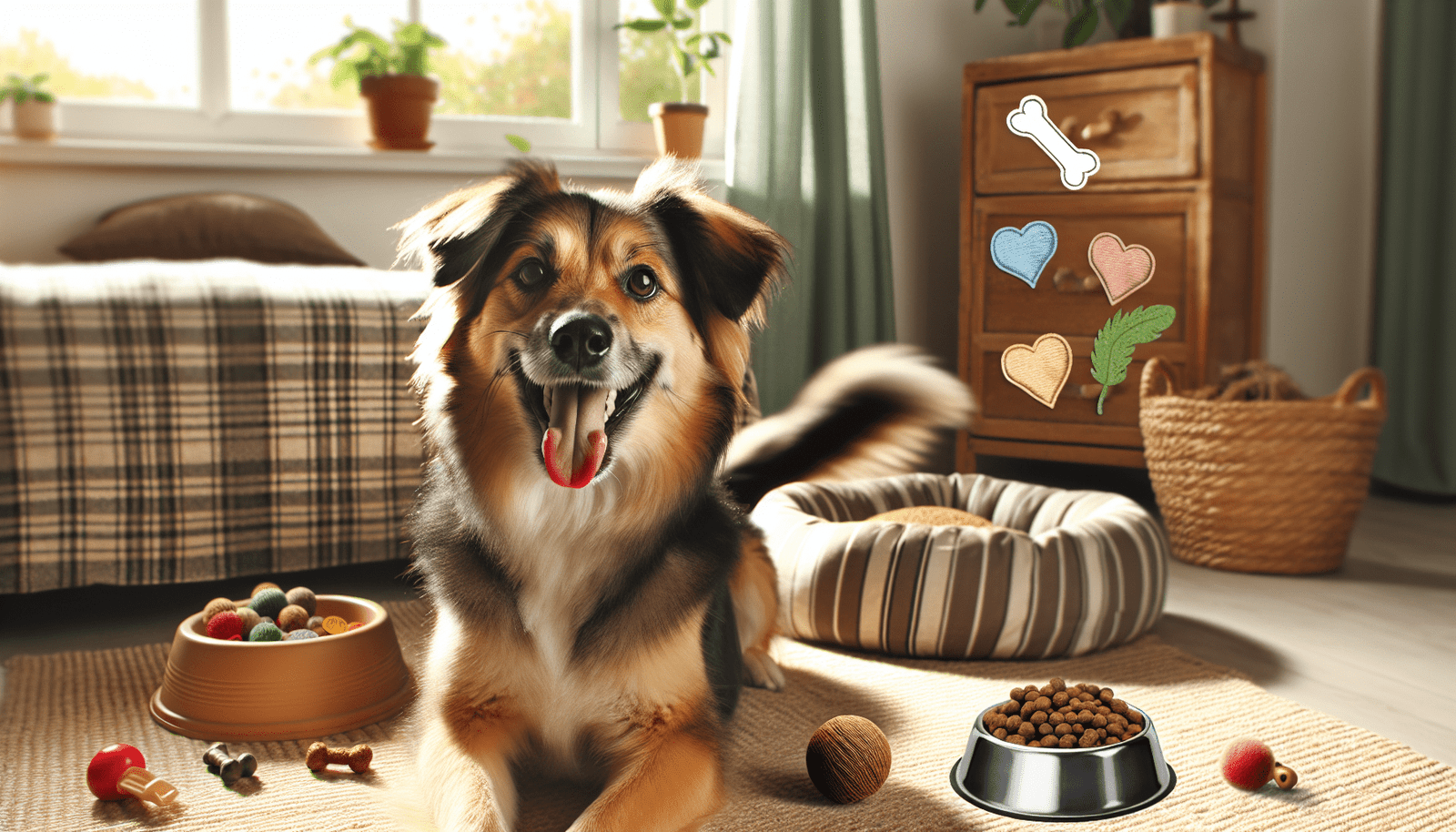Have you ever wondered if you’re doing everything you can to keep your dog happy and healthy at home? Owning a dog is like having a furry family member who depends on you for care and companionship. Whether you’re a newbie dog owner or have been around the block a few times with your canine buddy, there’s always something new to learn about making your dog’s life at home better.

Understanding Your Dog’s Basic Needs
Before getting into the nitty-gritty of daily care, let’s break down the basic needs that every dog has. Meeting these needs will ensure your dog not only survives but thrives.
Adequate Nutrition
Feeding your dog the right food is crucial. Dogs come in all shapes and sizes, and their dietary requirements can vary greatly depending on breed, age, size, and health conditions. It’s essential to provide them with a balanced diet. Consult your vet to determine the most suitable food and portion size for your dog.
Regular Exercise
Exercise is key to keeping your dog healthy and happy. This doesn’t just mean a quick jaunt around the block. Depending on your dog’s breed and energy levels, they might need longer walks, runs, or playtime in the yard. Exercise helps with weight control and is a great way to bond with your furry friend.
Veterinary Care
Routine veterinary care is non-negotiable. Regular check-ups can catch potential health issues early on. Vaccinations, flea and tick prevention, and dental care are all parts of maintaining your dog’s health.
Safe and Comfortable Environment
Providing your dog with a safe, clean, and comfortable environment is vital. This includes a cozy sleeping area where they can relax. Safety also means pet-proofing your home to prevent accidents and keeping harmful substances out of reach.
Social Interaction
Dogs are social animals and thrive on interaction. This can be with their human family as well as other animals. Ensuring your dog gets to engage socially will bolster their happiness and improve behavior.
Home Care Essentials
Now that you’ve got a handle on the basics, let’s talk about some specific tips for caring for your dog at home.
Grooming
Keeping your dog clean is part of maintaining their overall health. Depending on the breed, grooming needs can range from minimal to exhaustive.
- Brushing: Regular brushing helps reduce shedding and allows you to inspect for any unusual lumps or pests.
- Bathing: Most dogs need a bath now and then, but be careful not to overdo it, as this can strip essential oils from their skin.
- Nail Trimming: Untrimmed nails can cause discomfort and even injury to your pet. If you’re not confident doing this, a professional groomer can help.
Training
Training is beneficial for both you and your dog. Not only does it instill good behavior, but it also strengthens your bond. Consistent training using positive reinforcement techniques can help embed good habits and discipline.
Mental Stimulation
Boredom can lead to destructive behavior. Keeping your dog mentally stimulated is as important as physical exercise. Puzzle toys, basic obedience training, or even learning new tricks can keep your dog’s mind active.
Providing Space
Every dog needs their own space, whether it’s a bed, crate, or a specific room in the house they can retreat to. This should be a place where they feel safe and can relax without stress.
Problem Solving Common Issues
Even the most devoted dog owner runs into issues now and then. Here’s how you can address some common concerns.
Separation Anxiety
Dogs can become anxious when left alone. This often leads to destructive behavior. Gradually helping your dog feel comfortable alone for short periods and then gradually extending the time can help ease separation anxiety.
Barking
Excessive barking can be a big problem. Understanding why your dog is barking is key. They might be alerting you to danger, feeling stressed or bored, or trying to communicate a need.
Chewing
Chewing is a natural behavior for dogs, but it can be destructive when focused on the wrong objects. Providing chew toys and monitoring your dog’s chewing habits can mitigate damage.
Nutrition and Feeding Tips
Feeding your dog doesn’t have to be complicated, but it should be tailored to their specific needs.
Choosing Food
The diet you choose should suit your dog’s life stage and health condition. Whether you go for dry kibble, canned food, or a raw diet, make sure it’s vet-approved.
Feeding Schedule
Consistency is important. Feeding your dog at the same time every day helps establish a routine. Some dogs do well with one meal a day, while others thrive on two smaller servings.
Hydration
Always have fresh, clean water available. Dehydration can quickly become a serious problem. Your dog will naturally drink more in the warmer months or after exercise, so keep their bowl filled.
Treats
Treats are great for training and rewarding good behavior but should be given in moderation to avoid weight gain. Make sure treats aren’t more than 10% of their daily caloric intake.

Keeping Your Dog Safe at Home
A safe environment minimizes risk and promotes well-being.
Pet-Proofing Your Home
Look for potential hazards like electrical cords, toxic plants, and small objects that could be swallowed. Secure harmful substances and keep them out of reach.
Identification
Ensure your dog always has up-to-date identification. A collar with a tag containing your contact information is a must. Microchipping is a more permanent and reliable method of identifying your pet if they get lost.
Weather Considerations
Keep your dog safe from extreme weather conditions. In hot weather, provide plenty of water and shade, and never leave them in a parked car. In cold weather, limit time outside and provide a warm shelter.
Enrichment and Play
Enriching your dog’s life with play and activities is crucial to their happiness.
Toys
Choose toys that are appropriate for your dog’s size and play style. Rotation keeps things fresh and exciting.
Games
Interactive games like fetch, tug-of-war, or hide and seek can provide indoor and outdoor enjoyment.
Socializing
Introduce your dog to new people, pets, and environments to enhance their social skills and reduce anxiety in new situations.
Conclusion
Caring for your dog at home involves a myriad of aspects, from health to happiness. Understanding your dog’s needs and addressing them with love and care brings joy to them and fulfillment to you. Every moment spent with your dog is an opportunity to learn, adapt, and enjoy a mutually enriching relationship. With these tips, you’re well on your way to securing a happy and healthy life for your furry family member. After all, a happy dog makes for a happy home.
